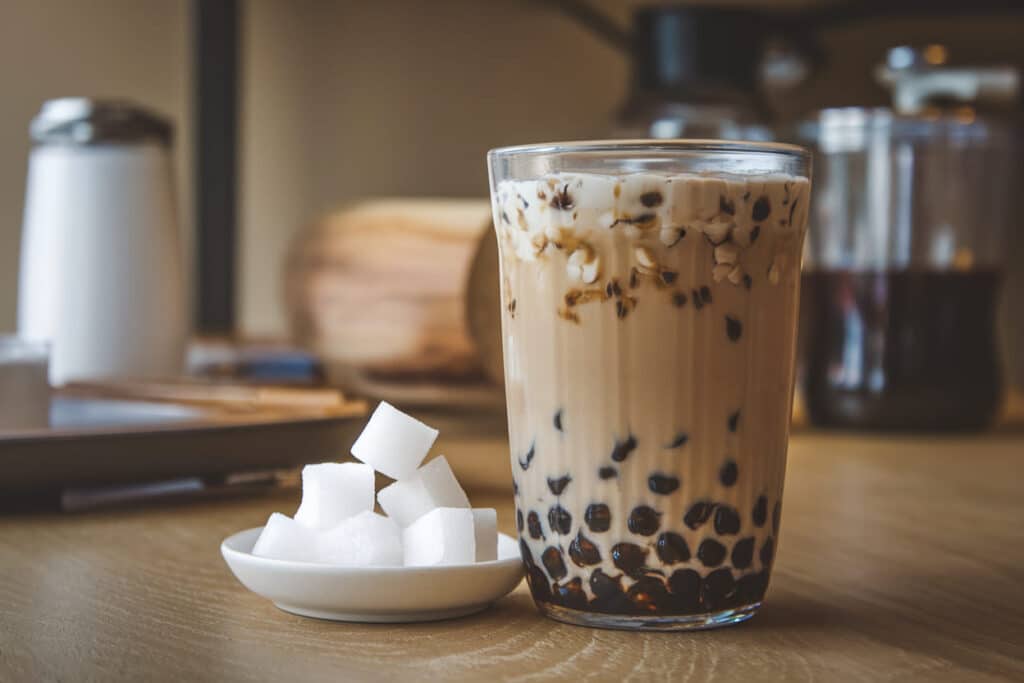Is Boba Tea Gluten Free? Everything You Need to Know
Boba tea, also called bubble tea, has become a global favorite thanks to its creamy textures, chewy tapioca pearls, and endless flavor combinations. But for those with gluten sensitivities or celiac disease, a common question arises: Is boba tea gluten-free?
The good news is that boba tea is generally gluten-free, but there are some key details to watch for to ensure your drink is safe for a gluten-free diet. Let’s dive into what makes boba tea gluten-free, potential risks, and tips for ordering confidently at your favorite tea shop.
The Quick Answer: Is Boba Tea Gluten-Free?
Yes, most boba tea is gluten-free. The main ingredients in boba tea – tea, milk, sweeteners, and tapioca pearls – do not naturally contain gluten. Tapioca pearls, for instance, are made from tapioca starch derived from the cassava root, which is naturally gluten-free.
However, there are exceptions. Some toppings, flavorings, or additives used in certain boba tea recipes may contain gluten. It’s always best to check the ingredients, especially if you have a gluten intolerance or allergy.
Understanding the Gluten-Free Status of Boba Tea Ingredients
Let’s break down the key components of boba tea to assess their gluten-free status:
1. Tapioca Pearls
- Are tapioca pearls gluten-free? Yes! Tapioca pearls are made from tapioca starch, which is gluten-free.
- However, cross-contamination can sometimes occur during production or preparation if the factory or boba shop handles gluten-containing products.
2. Tea Base
- The tea base in milk tea or boba milk tea (commonly black, green, or oolong tea) is naturally gluten-free.
- Tea itself does not contain gluten unless it’s a specialty blend with added ingredients, such as barley or malt flavoring, which may contain gluten.
3. Milk and Milk Alternatives
- Regular milk and most plant-based milks (like almond, soy, or oat milk) are gluten-free. However, some oat milks may use oats processed with gluten-containing grains, so it’s important to verify the brand if you have a strict gluten-free diet.
4. Sweeteners and Syrups
- Simple syrups (made from sugar and water) are gluten-free.
- Flavored syrups, like caramel or chocolate, are generally gluten-free but can occasionally contain additives derived from gluten. For example, certain “cookie” or “cake” flavored syrups may not be gluten-free. Always double-check if you’re unsure.
5. Toppings
- Brown sugar boba: The caramelized syrup coating the pearls is typically gluten-free.
- Jellies (e.g., aloe vera, lychee, or grass jelly): These are usually gluten-free, but some may contain gluten-based thickeners.
- Popping boba (juice-filled pearls): Most popping boba options are gluten-free, but always confirm with the tea shop to be certain.
Potential Gluten Risks in Boba Tea
While most boba tea ingredients are naturally gluten-free, certain factors may introduce gluten:
1. Cross-Contamination
- Cross-contamination can occur if a boba tea shop uses shared equipment for gluten-containing products, such as pastries or blended drinks with cookie toppings.
2. Gluten in Flavorings or Additives
- Some flavored syrups, powders (like taro or matcha blends), or toppings might contain gluten as a hidden ingredient. For example, pre-mixed powders used for taro milk tea sometimes include malt, which contains gluten.
3. Premade Tapioca Pearls with Fillers
- While tapioca pearls are naturally gluten-free, some premade versions might include gluten-containing additives or thickeners. Be sure to check the label or ask your tea shop if their tapioca pearls are certified gluten-free.
Tips for Enjoying Gluten-Free Boba Tea
If you have gluten sensitivity or celiac disease, here are some practical tips to safely enjoy boba tea:
1. Ask About Ingredients
- Don’t hesitate to ask your boba shop about the ingredients in their drinks, toppings, and syrups. A reputable shop should be transparent about their products.
2. Opt for Simple Drinks
- Stick to straightforward options like classic milk tea or brown sugar boba milk tea, which are less likely to contain gluten.
3. Verify Plant-Based Milk Options
- If you’re choosing a dairy-free milk, double-check that it’s gluten-free, especially for oat-based options.
4. Look for Certified Gluten-Free Boba Shops
- Some boba shops or brands may offer certified gluten-free ingredients, ensuring no cross-contamination.
5. Avoid Risky Toppings
- Skip toppings that may have a higher risk of gluten contamination, such as cookie crumbles or certain flavored jellies.
Homemade Gluten-Free Boba Tea
If you want to enjoy boba tea with complete peace of mind, making it at home is a great option. Here’s how:
Ingredients
- Tapioca pearls: Purchase certified gluten-free tapioca pearls.
- Tea: Use any plain tea of your choice, such as black, green, or oolong tea.
- Milk: Choose regular milk or a gluten-free plant-based alternative.
- Sweetener: Add simple syrup or caramelized brown sugar for sweetness.
Instructions
- Cook the tapioca pearls according to the package instructions.
- Brew your tea and let it cool.
- Combine the tea, milk, and sweetener.
- Add the cooked tapioca pearls to your drink, and enjoy your homemade gluten-free boba tea!
Final Thoughts
So, is boba tea gluten-free? In most cases, yes! However, gluten can sometimes sneak in through certain toppings, syrups, or cross-contamination. By asking the right questions and sticking to simple, natural ingredients, you can enjoy this iconic drink without worry.
Whether you love brown sugar boba, classic milk tea, or creative fruity blends, boba tea is a versatile treat that can fit into a gluten-free diet with a little caution. Always prioritize transparency when ordering, and consider experimenting with homemade boba tea for a fully gluten-free experience.

